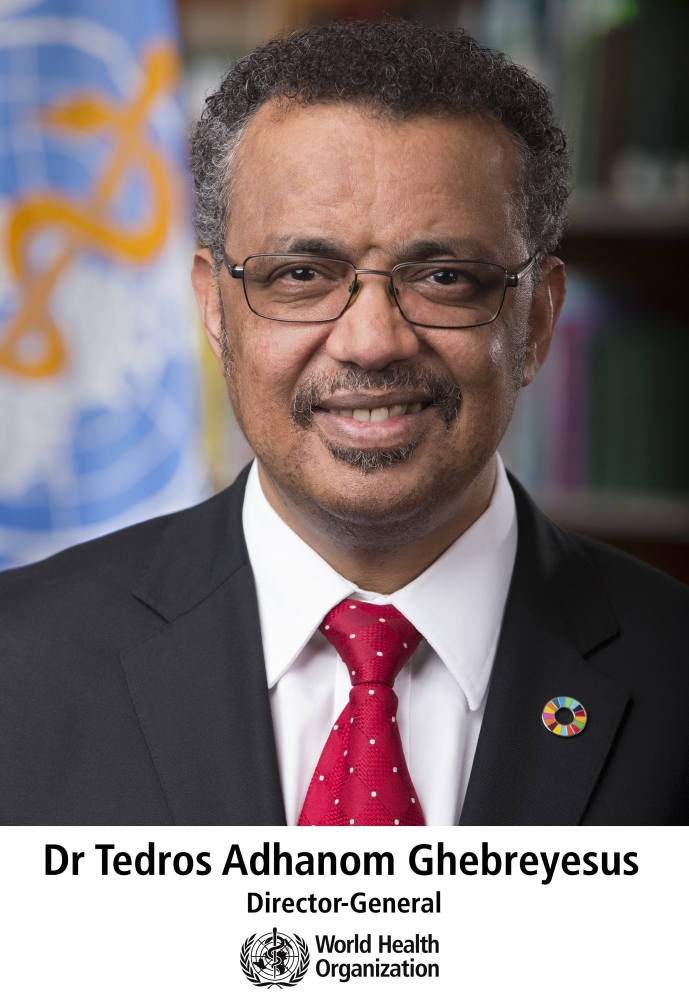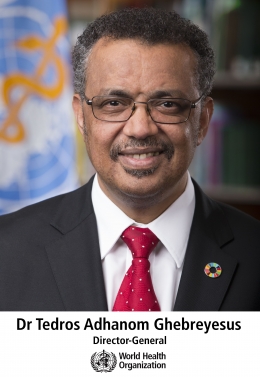Saat terjadi krisis, seperti merebaknya Covid-19, karena SARS-CoV-2, maka mengkomunikasikan krisis menjadi salah satu hal yang sangat penting untuk dilakukan.
Tujuan dilakukannya komunikasi krisis di antaranya adalah untuk menyampaikan informasi terkini, melakukan kesiapsiagaan, menginformasikan langkah-langkah yang harus dilakukan, mengungkapkan tantangan dan hambatan yang dihadapi, serta berbagai tujuan lainnya.
Pakar komunikasi berkebangsaan Inggris yang menetap di Singapura, Vivian Lines menyampaikan rumus 3C dalam mengkomunikasikan suatu krisis. Dalam hal ini, 3C tersebut adalah:
- Concern,
- Control, dan
- Commitment.
Dalam praktiknya, penerapan 3C saat ini tentu bukan hal yang mudah di tengah krisis yang terjadi, melimpah atau justru kurangnya data dan informasi, serta membeludaknya hoax yang tersebar.
Namun demikian, Direktur Jenderal WHO, Dr. Tedros Adhanom Ghebreyesus mampu menerapkan 3C tersebut dalam setiap pidatonya. Anda dapat membaca naskah pidato tersebut di sini.
Kita ambil contoh saja dari naskah pidato Dr. Tedros pada Kamis, 12 Maret 2020.
Pada beberapa paragraf berikut, Dr. Tedros menyampaikan perhatian atau concern-nya atas situasi yang terjadi.
Dia menyampaikan bahwa keputusan menaikkan status Covid-19 sebagai Pandemi, menyebar ke seluruh dunia dalam skala global, bukanlah keputusan yang mudah.
Dia menjelaskan setidaknya ada dua alasan di balik keputusan menaikkan penyebaran Covid-19 sebagai Pandemi. Pertama karena skala dan kecepatan penyebaran penyakit.
Kedua, karena meskipun WHO sudah menyampaikan peringatan, tetapi tidak semua negara melakukan langkah-langkah yang diperlukan untuk merespon penyebaran wabah.
Alasan itu dilengkapi dengan paparan fakta berupa data dan informasi paling mutakhir. Lebih jauh untuk menunjukkan bagian Concern ini, dia menggunakan kata 'concerned' di salah satu bagian pidatonya.
First of all, I would like to say good morning.
As you know, yesterday I said that that the global COVID-19 outbreak can now be described as a pandemic.
This is not a decision we took lightly.
We have made this assessment for two main reasons: first, because of the speed and scale of transmission.
Almost 125,000 cases have now been reported to WHO, from 118 countries and territories. In the past two weeks, the number of cases reported outside China has increased almost 13-fold, and the number of affected countries has almost tripled.
The second reason is that despite our frequent warnings, we are deeply concerned that some countries are not approaching this threat with the level of political commitment needed to control it.
Let me be clear: describing this as a pandemic does not mean that countries should give up. The idea that countries should shift from containment to mitigation is wrong and dangerous.
On the contrary, we have to double down.
Dari 3C, maka C yang kedua adalah Control. Kendati baru saja mengumumkan bahwa terjadi Pandemi karena Covid-19, tetapi Dr. Tedros tetap menyampaikan bahwa ini adalah pandemi yang dapat dikontrol.
Tentu saja dia menambahkan perlunya setiap negara untuk terus berjuang melawan virus dan pandemi penyakit ini. Sebab, disampaikan juga olehnya, tanpa upaya yang terukur, maka dampaknya akan lebih besar dan masalah akan membesar.
Selain itu, disampaikan pula saran kepada negara-negara di dunia untuk menyeimbangkan upaya kesehatan, ekonomi, sosial, dan penghargaan terhadap hak asasi manusia.
This is a controllable pandemic. Countries that decide to give up on fundamental public health measures may end up with a larger problem, and a heavier burden on the health system that requires more severe measures to control.
All countries must strike a fine balance between protecting health, preventing economic and social disruption, and respecting human rights.
Selanjutnya, C yang ketiga adalah Commitment. Meskipun sebelum menyampaikan komitmen tersebut, Dr. Tedros menyampaikan empat strategi:
- Melakukan persiapan berbagai hal, terutama warga negara dan fasilitas kesehatan.
- Melakukan deteksi, pencegahan, dan perawatan. Tujuan langkah ini adalah untuk memutus mata rantai penyebaran virus.
- Melakukan pengurangan dan menghentikan penyebaran virus. Caranya menemukenali mereka yang positif dan mengisolasi kontak terdekat.
- Melakukan inovasi dan improvisasi. Sebab ini adalah virus dan situasi yang baru, belum ada pengalaman sebelumnya. Semua negara dan organisasi sama-sama belajar untuk menghentikan penyebaran virus, memyelamatkan nyawa, dan mengurangi dampaknya.
Setelah bagian strategi, komitmen itu pun disampaikan, mengenai berbagai upaya yang sudah, sedang, dan akan dilakukan oleh WHO.
Disampaikannya bahwa WHO akan bekerja siang dan malam untuk mendukung negara-negara di dunia. Lembaga kesehatan dunia itu juga telah mengirimkan berbagai peralatan kesehatan, bahan-bahan untuk pengujian laboratorium, peta jalan penelitian, pelatihan, dan paket lengkap petunjuk teknis untuk mengatasi penyebaran wabah.
Tak lupa, Dr. Tedros menyampaikan telah bekerja sama dengan berbagai pihak, seperti swasta, FIFA, dan organisasi-organisasi PBB lainnya. Disampaikan juga terima kasih kepada negara-negara yang telah mendukung organisasi ini.
Kemudian dia mengingatkan, bahwa kita harus bersama-sama dalam menghadapi ujian ini semua.
We urge all countries to take a comprehensive approach tailored to their circumstances -- with containment as the central pillar.
We are calling on countries to take a four-pronged strategy:
First, prepare and be ready.
There are still 77 countries and territories with no reported cases, and 55 countries and territories that have reported 10 cases or less.
And all countries with cases have unaffected areas. You have an opportunity to keep it that way. Prepare your people and your health facilities.
Second, detect, prevent and treat.
You can't fight a virus if you don't know where it is. That means robust surveillance to find, isolate, test and treat every case, to break the chains of transmission.
Third, reduce and suppress.
To save lives we must reduce transmission. That means finding and isolating as many cases as possible, and quarantining their closest contacts. Even if you cannot stop transmission, you can slow it down and protect health facilities, old age homes and other vital areas -- but only if you test all suspected cases.
And fourth, innovate and improve.
This is a new virus and a new situation. We're all learning and we must all find new ways to prevent infections, save lives, and minimize impact. All countries have lessons to share.
WHO is working day and night to support all countries.
We have shipped supplies of personal protective equipment to 57 countries, we're preparing to ship to a further 28, and we've shipped lab supplies to 120 countries.
We've published an R&D roadmap, with a set of core protocols for how studies should be done.
We've published a comprehensive package of technical guidance.
We've had more than 176,000 enrollments in our COVID training courses on OpenWHO.
We're working with the World Economic Forum and the International Chambers of Commerce to engage the private sector. We're also working with FIFA.
We're working with our colleagues across the UN system to support countries to develop their preparedness and response plans, according to the 8 pillars.
And more than 440 million U.S. dollars has now been pledged to WHO's Strategic Preparedness and Response Plan.
We thank those countries that have contributed, especially those that have contributed fully flexible funds. Because this is a dynamic situation, we need the greatest flexibility possible to provide the best support possible. In the spirit of solidarity, we ask countries not to earmark funds for this response.
Thank you all once again for your support and commitment.
As I keep saying, we're all in this together.
I thank you.
Baca konten-konten menarik Kompasiana langsung dari smartphone kamu. Follow channel WhatsApp Kompasiana sekarang di sini: https://whatsapp.com/channel/0029VaYjYaL4Spk7WflFYJ2H








